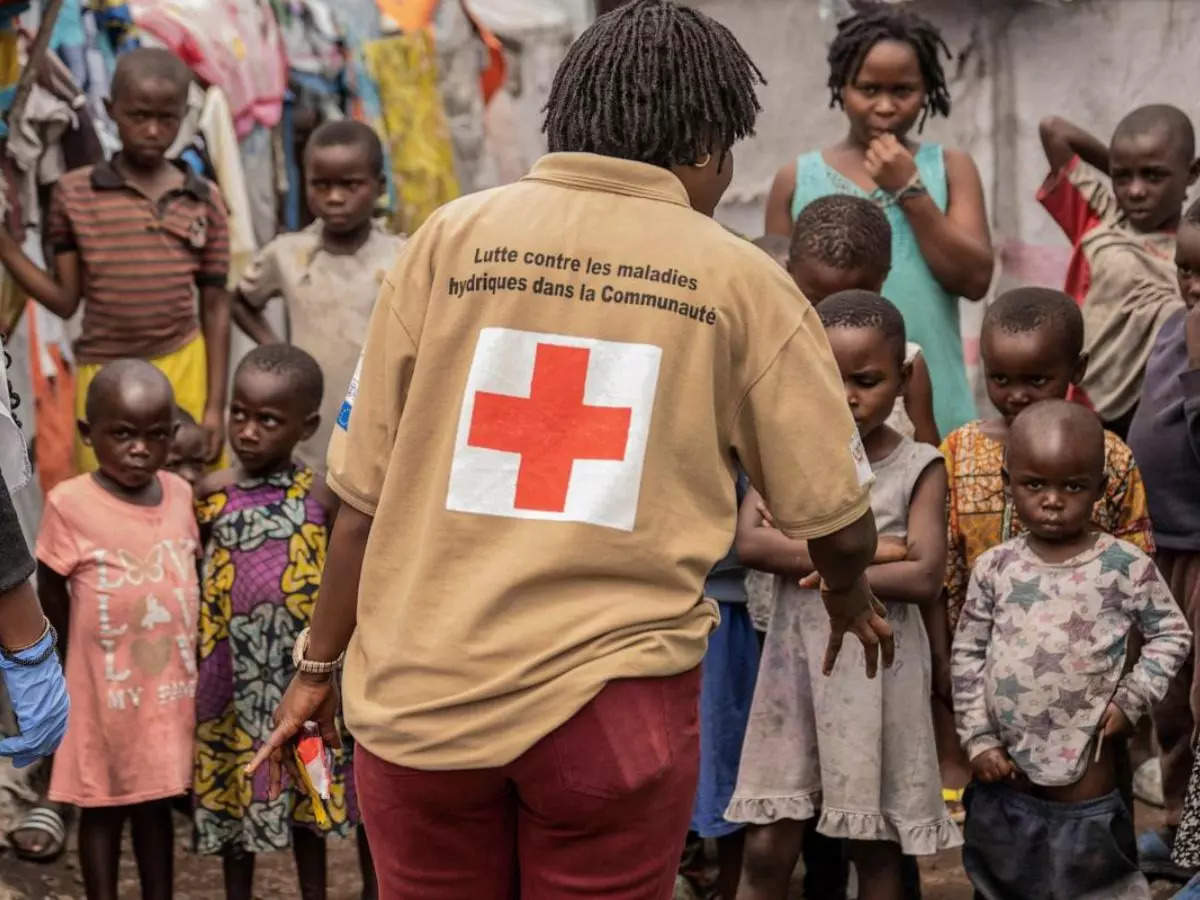[ad_1]

London: The Ampox outbreak is on the rise from what happened in Africa World Health OrganizationThe emergency declaration was largely a response to decades of neglect and Incompetence of the global community To prevent sporadic epidemics among populations with low immunity Smallpox-related illnessLeading African scientists said this on Tuesday.
According to WHO Chief Dr. Dimi Ogoina, Mpox Emergency CommitteeNegligence has led to the emergence of a new, more contagious variant of the virus, which is spreading in countries that have fewer resources to contain the outbreak.
Mpox, also known as monkeypox, spread undetected in Africa for years before spreading to more than 70 countries in 2022, Ogoina said at an event. Virtual News Conference,
“What we are seeing now in Africa is different from the global outbreak in 2022,” he said. While that outbreak was primarily focused on gay and bisexual men, ampox in Africa is now spreading through sexual transmission as well as close contact among children, pregnant women and other vulnerable groups.
And while most people over the age of 50 have been vaccinated against smallpox — which may offer some protection against mpox — that’s not the case for much of Africa’s younger population, who Ogoina said are most vulnerable.
Ampox belongs to the same family of viruses that includes smallpox, but it causes milder symptoms, such as fever and body aches. It spreads mostly through close skin-to-skin contact, including sex. People with more severe cases may develop large blisters on the face, arms, chest and genitals.
Earlier this month, the World Health Organization declared the growing ampox outbreak in Congo and 11 other African countries a global emergency.
On Tuesday, Africa Centre for Disease Control There have been more than 22,800 m-pox cases and 622 deaths on the continent, and infections have risen by 200 percent in the past week, the ministry said. Most of the cases and deaths are in Congo, where m-pox infections are highest in children under 15.
Dr. Placide Mbala-Kingbeni, a Congolese scientist who helped identify the latest variant of Mpox, said diagnostic tests used in the country don’t always detect it, making the spread of the variant harder to track.
In May, Mbala-Kingabeni, head of a laboratory at Congo’s National Institute for Biomedical Research, published research showing a new form of ampox that may be less deadly but more contagious. He said notable mutations suggest it is “more suited to human transmission,” but a lack of tests in Congo and elsewhere made it complicated. Efforts to monitor outbreaks,
The new variant has been detected in four other African countries as well as in Sweden, where health officials said they this month identified the first case of a more contagious form of ampox in a man who became infected while in Africa.
WHO said that the data available so far does not indicate that the new form of ‘Mpox’ is more dangerous, but research is ongoing on this.
Marion Koopmans, a virologist Erasmus Medical Center Dr. A. K. Sharma, who is studying ampox in the Netherlands, said scientists are now seeing some significant effects of the disease, adding that pregnant women are having miscarriages or losing their fetuses and some babies are being born infected with ampox.
Ogoina, a professor of infectious diseases at Nigeria’s Niger Delta University, said that in the absence of vaccines and drugs, African health workers should focus on providing supportive care, such as making sure patients get enough food and are given mental health support, because there is often stigma associated with ampox.
“It is very unfortunate that we have been using Ampox for 54 years and now we are thinking about its treatment,” he said.
Mbala-Kingbeni said strategies previously used to contain Ebola outbreaks in Africa could be helpful, since the number of vaccines is expected to be limited. She said officials have estimated that Africa needs about 10 million doses, but they may only get 500,000 — and it’s unclear when those will arrive.
“Finding a case and vaccinating around it, as we did in the case of Ebola, can help us target hotspots,” he said.
Koopmans said that given the urgent need for vaccines in Africa, it is unrealistic to wait for more doses to be produced.
“The real short-term question is who has the vaccines and where can they be used next?” he said.
Spain’s health ministry announced Tuesday that it would donate 20 percent of its supply of AmPox vaccine, around 500,000 doses, to African countries battling AmPox.
“We consider it foolish to stockpile vaccines where they are not needed,” Spain’s health ministry said in a statement, adding that Spain would recommend to the European Commission that it also offer all member states a donation of 20 per cent of its vaccine stockpiles.
Spain’s donation alone is more than promised by the EU, Vaccine Bavarian Nordic and the US. Last week, the Africa CDC said the EU and Bavarian Nordic had pledged 215,000 doses of the Mpox vaccine while the US said it was donating 50,000 doses of the same vaccine to Congo. Japan has also donated some doses to Congo.
Meanwhile, the United States on Tuesday donated 10,000 doses of the ampox vaccine to Nigeria, where ampox is common, the first to reach Africa since it was declared a global emergency. The country has had a few dozen cases this year.
[ad_2]
Source link

